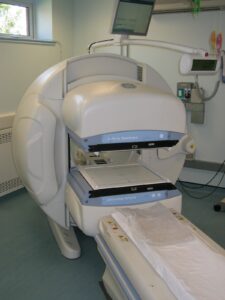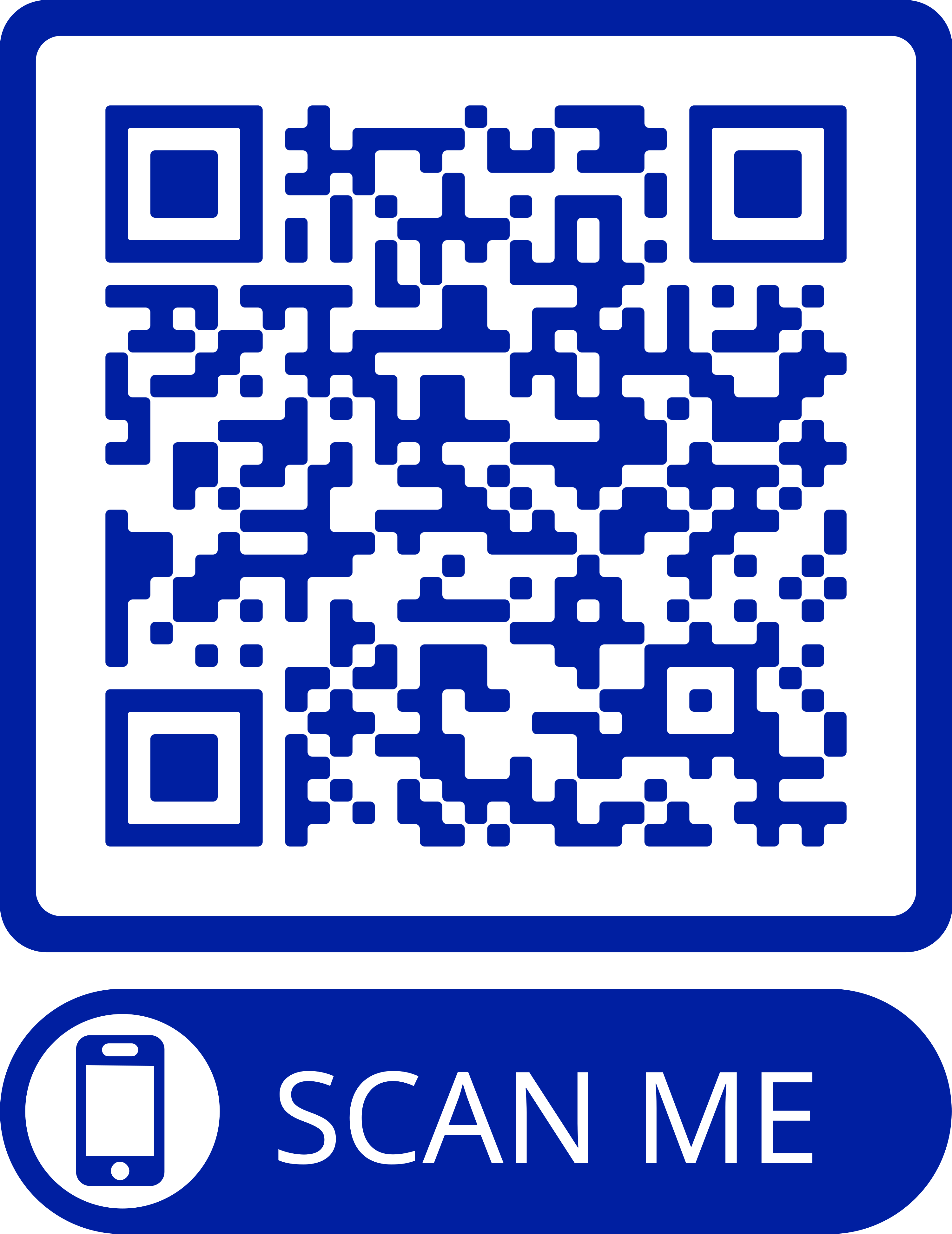- Reference Number: HEY425/2019
- Departments: Nuclear Medicine
- Last Updated: 28 February 2019
Introduction
This leaflet has been produced to give you general information about your visit to the Nuclear Medicine Department. Most of your questions should be answered by this leaflet. It is not intended to replace the discussion between you and the healthcare team, but may act as a starting point for discussion. If after reading it you have any concerns or require further explanation, please discuss this with a member of the healthcare team.
What is nuclear medicine?
Nuclear Medicine uses radioactive tracers to diagnose or treat different diseases. These tracers are medicines that emit radiation (similar to X-rays). In diagnostic nuclear medicine the tracer is used to find disease; this might be done using a special camera called a gamma-camera, with a hand-held detector called a probe, or by taking blood samples to be examined at a later time.
What should I do to prepare for my nuclear medicine appointment?
You should normally have received an appointment letter through the post detailing the steps you should follow before your appointment. Please read this letter thoroughly as each different procedure has different requirements. In particular, please pay attention to any information about food and drink and medications. If you do not follow these steps we may not be able to proceed with your appointment.
There is a small radiation dose involved in all nuclear medicine tests. This is very low and should not cause undue concern as in all cases the benefits to you from having the test greatly outweigh any potential risk.
Please call the department as soon as possible if you are or think you might be pregnant or if you are breastfeeding.
Can I bring someone with me To my appointment?
You are welcome to bring one person with you to the department, although in some cases they may need to stay in the waiting room during the procedure. If you require more than one person to come with you (for example as a carer or an interpreter), please try and limit this to as few people as possible. Please do not bring children with you to the department unless they are the patient having the test.
What happens at my appointment?
Many different procedures are scheduled to take place in the department on the same day and so you may find that other people in the waiting room are seen in a different order or at a different time to you.
On arrival at the Nuclear Medicine Department you will be called into one of our treatment rooms where you will be seen by a member of staff. The person you are seeing will tell you about the procedure; explain anything you need to do during or after the procedure and will make sure you are happy before going ahead. If there is anything you are not sure about, please ask a member of staff.
Normally, nuclear medicine will involve having an injection of the radioactive tracer into a vein, often in your arm or hand. If you have problems with injections, please let one of our staff members know so that they can discuss this with you. Occasionally the test will involve swallowing a capsule containing the radioactive tracer. These are no bigger than an antibiotic or pain relief medication capsule and should not pose a problem.
If you are having a test which involves coming back at a later time, the person you are seeing will tell you what time to return and if it is alright for you to leave the hospital in the meantime. If you are having a test which involves images being taken with a gamma-camera you will be brought through to one of our camera rooms where the member of staff taking the images will help to position you.
What happens after my appointment?
After your appointment you will be allowed to go home. In most cases there are no precautions to take in relation to the radiation, however if there are you will be told about these before you are allowed to leave and usually you will be given these in writing.
If you are having a diagnostic procedure the data or images will be processed and the results sent to the doctor who referred you. To get the results you should contact your doctor directly or make an appointment to see your doctor in clinic. We will not normally be able to give you your results on the day of your procedure.
What is a Gamma-camera?
Gamma-cameras are large imaging machines which take pictures of the radioactive tracers from the outside of your body.

One of the Gamma-cameras in the Castle Hill Department
There is no need to undress for this part of the procedure but please try to avoid clothing that has metallic fasteners and decoration as these can affect the images. If this is unavoidable we may ask you to change into a gown whilst the pictures are being taken. Jewellery can also affect the pictures and so we may ask you to remove items such as necklaces, or large ear-rings, however we won’t normally ask you to remove wedding or engagement rings.
The cameras used are very quiet and will not make you feel any different whilst they are in use. To get the best pictures the detectors will often be moved very close to your body; however they will not touch you. If you are uncomfortable with the cameras being so close, let a member of staff know and they will see what they can do to help.
Where can I get more information about nuclear medicine?
If you want more information about nuclear medicine or your procedure, please feel free to contact the Nuclear Medicine Department directly or talk to your doctor. The Nuclear Medicine Department also has a website at: www.heynm.org.uk. The website has more information about nuclear medicine; the departments at Castle Hill Hospital and Hull Royal Infirmary and leaflets about some of our tests and therapies.
Should you require further advice about the issues contained in this leaflet, please do not hesitate to contact the Nuclear Medicine Department tel: 01482 622125 or 674782.
General Advice and Consent
Most of your questions should have been answered by this leaflet, but remember that this is only a starting point for discussion with the healthcare team.
Consent to treatment
Before any doctor, nurse or therapist examines or treats you, they must seek your consent or permission. In order to make a decision, you need to have information from health professionals about the treatment or investigation which is being offered to you. You should always ask them more questions if you do not understand or if you want more information.
The information you receive should be about your condition, the alternatives available to you, and whether it carries risks as well as the benefits. What is important is that your consent is genuine or valid. That means:
- you must be able to give your consent
- you must be given enough information to enable you to make a decision
- you must be acting under your own free will and not under the strong influence of another person
During the course of your procedure the radiology staff will ask questions that may appear unnecessary to you and these may be repeated at certain intervals. Please be assured that these questions are necessary to ensure that all aspects of your care during the procedure are maintained to a high standard.
Information about you
We collect and use your information to provide you with care and treatment. As part of your care, information about you will be shared between members of a healthcare team, some of whom you may not meet. Your information may also be used to help train staff, to check the quality of our care, to manage and plan the health service, and to help with research. Wherever possible we use anonymous data.
We may pass on relevant information to other health organisations that provide you with care. All information is treated as strictly confidential and is not given to anyone who does not need it. If you have any concerns please ask your doctor, or the person caring for you.
Under the General Data Protection Regulation and the Data Protection Act 2018 we are responsible for maintaining the confidentiality of any information we hold about you. For further information visit the following page: Confidential Information about You.
If you or your carer needs information about your health and wellbeing and about your care and treatment in a different format, such as large print, braille or audio, due to disability, impairment or sensory loss, please advise a member of staff and this can be arranged.

